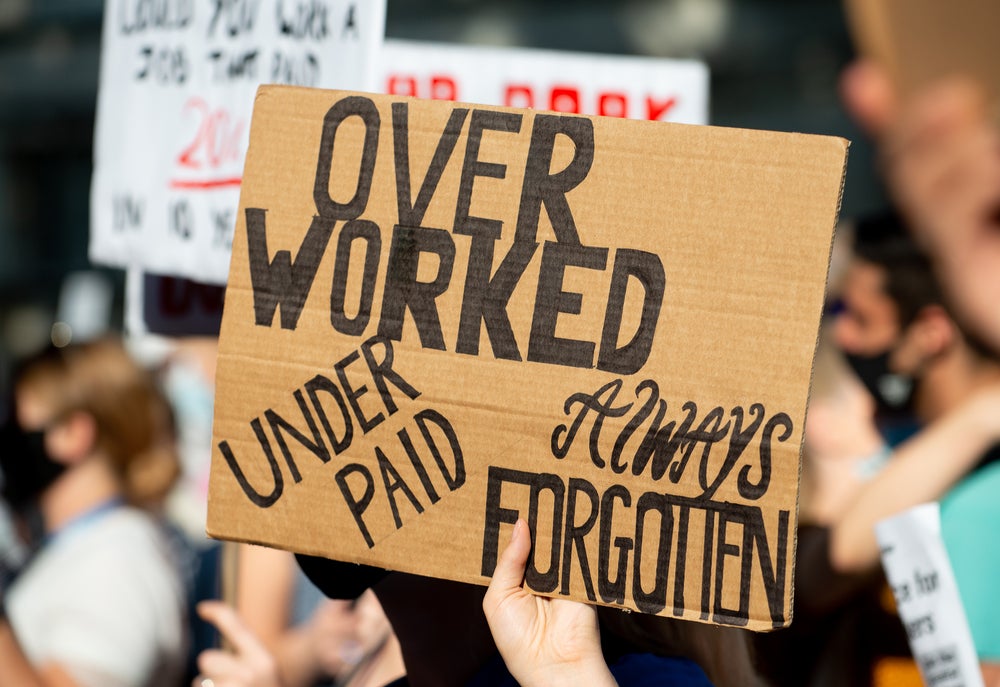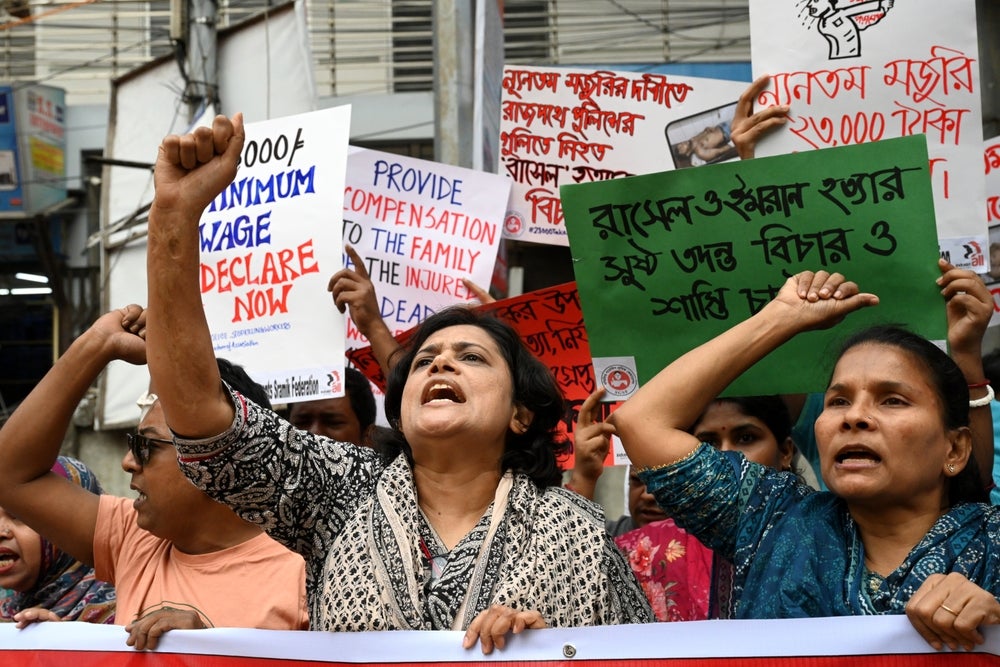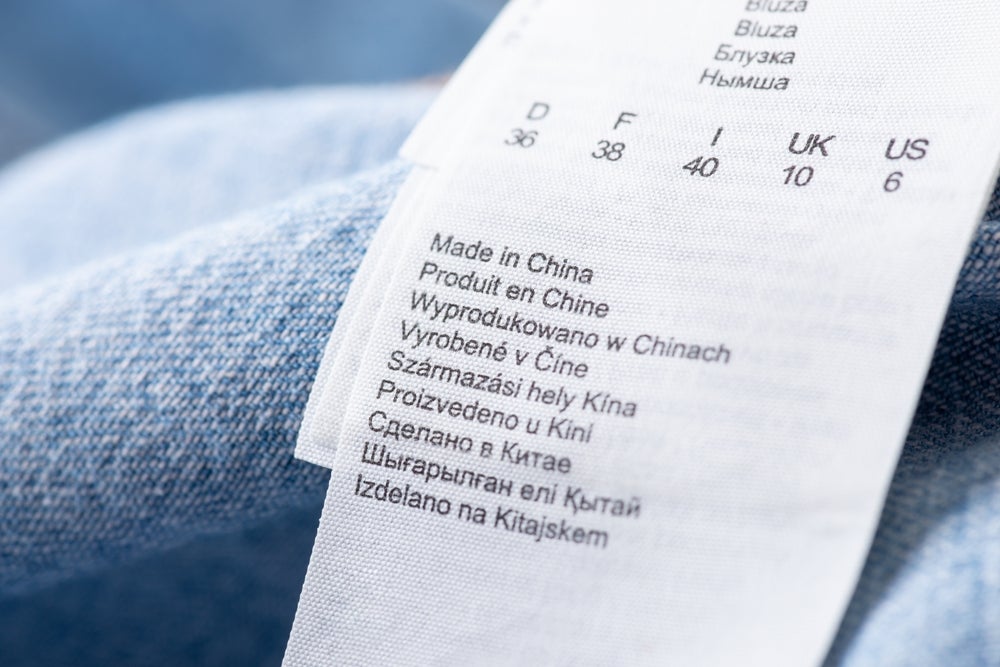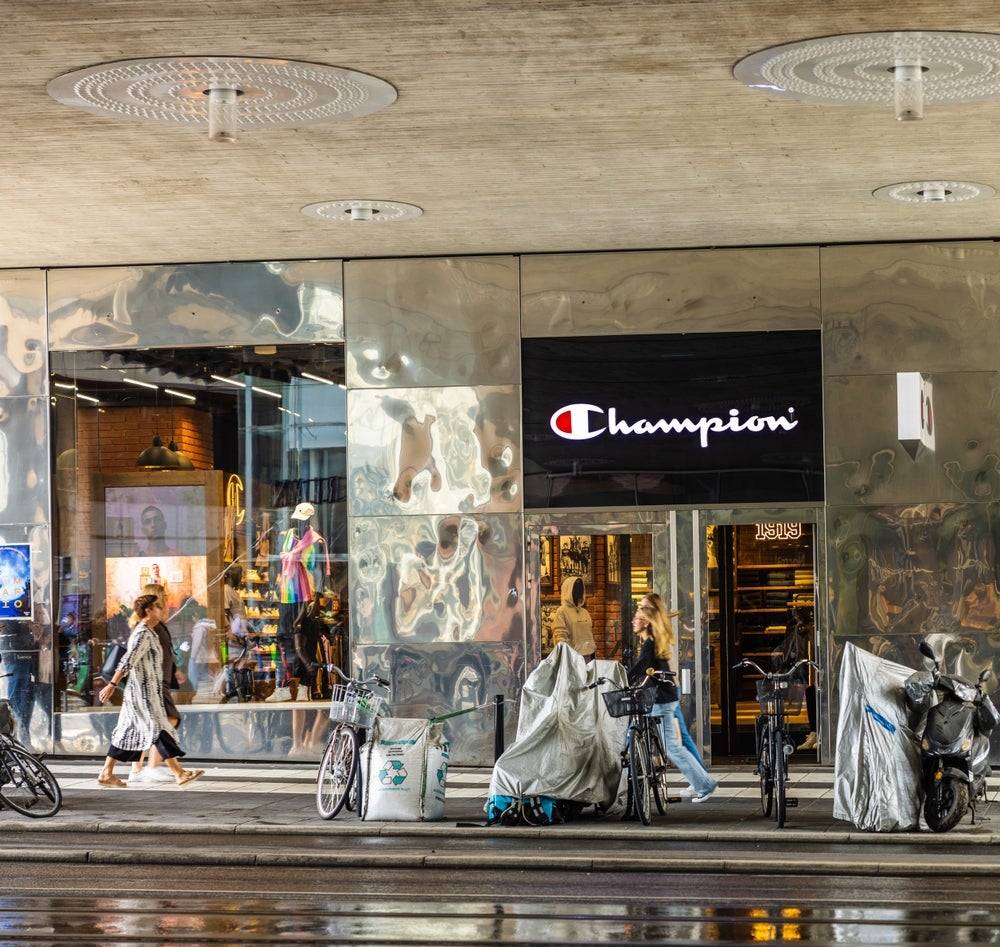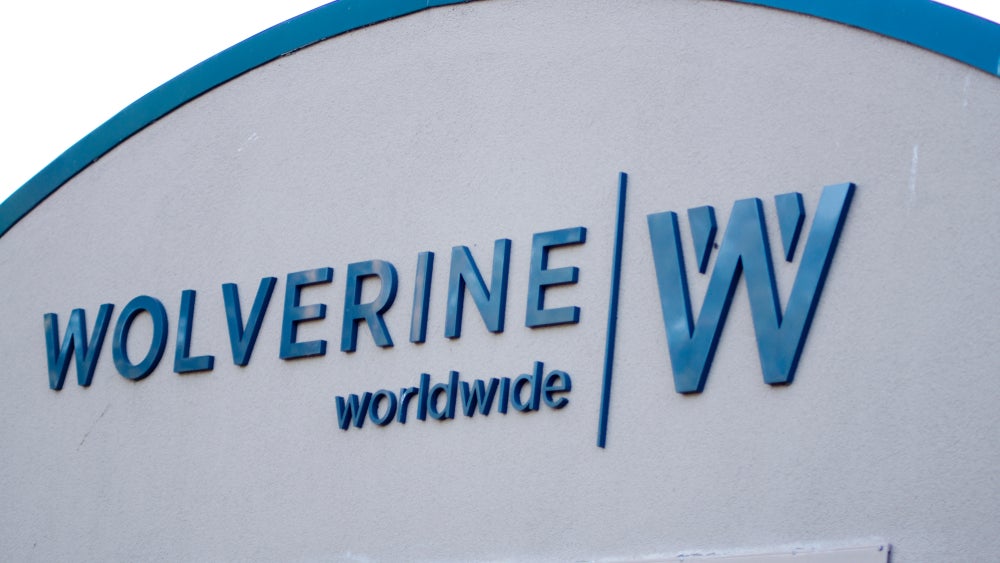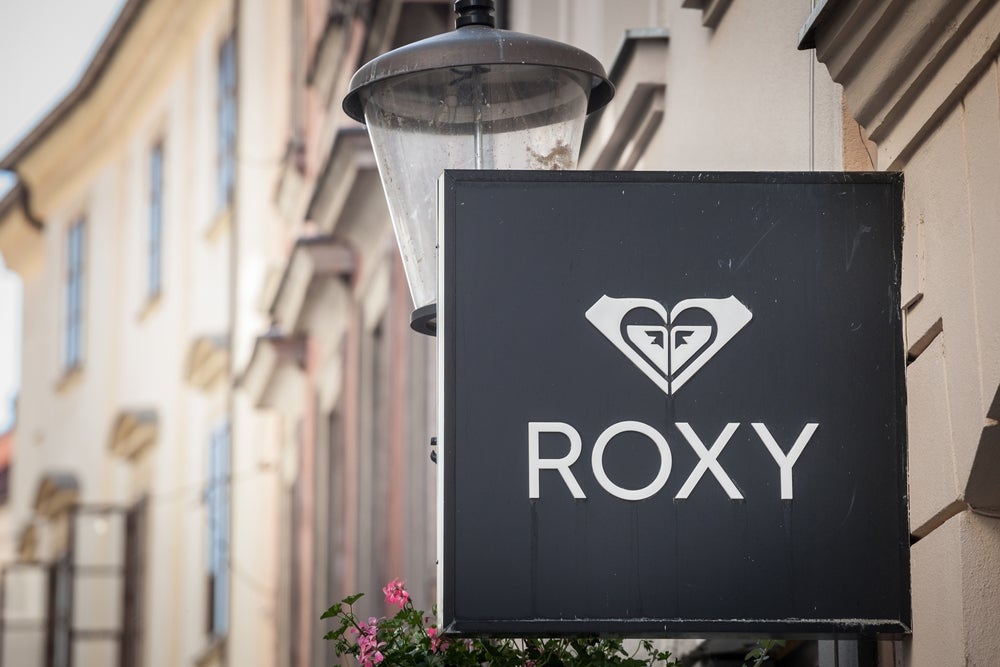Last week UK retailer Boohoo made headlines following a BBC Panorama investigation for allegedly pressuring suppliers to drive down prices, even after deals had been agreed.
Boohoo maintains that it is continuing to deliver on the commitments it made as part of its Agenda for Change following the criticisms it received around the pandemic.
The trickle down effect of any fashion company bartering for the cheapest price is the impact on factories being able to pay their workers a decent wage and being able to give their workers enough time to produce the orders without running them into the ground.
Pretty much every fashion brand or retailer now has someone dedicated to sustainability with some even having consumer-facing sustainability ambassadors.
Sadly, we don't see the same focus on social responsibility either behind the scenes or with a Tik-Tok/Instagram-friendly celebrity-fronted role so it begs the question: Has the focus on tackling sustainability allowed social responsibility to go by the way side?
There has been a lot of change in a short space of time within global fashion supply chains, especially as legislation is on the horizon that will force fashion brands and retailers to be accountable for extended producer responsibility as well as environmental and social due diligence.
But what is being achieved on the sustainability front still seems to be outweighing what is happening on the social side.
Only a couple of weeks ago for instance, US fashion brand Nike was named a ‘backer’ of what is being called an industry first clean energy project to decarbonise supply chains, which is fantastic from a sustainability point of view.
Zara’s parent company Inditex has been doing lots of cool stuff within the circularity space and most recently revealed it would be acquiring the first available 2,000 tonnes of Circulose to lower its impact on the environment by 2030. This is another great sustainability initiative but it's good to see it is also taking social responsibility seriously by partnering with the International Apparel Federation to improve working conditions and traceability throughout its fashion supply chain.
This is particularly important as Zara came under fire last week with the Canadian corporate ethics watchdog CORE launching an independent fact-finding investigation into Zara Canada over allegations of forced labour links, which Zara has denied.
Cost can no longer be the driving factor if we do want true ethical sourcing on both a sustainable and social level to be the norm for all retailers and brands.
Until the entire fashion sector proves to members of the public that it is doing right by both the planet and its people, investigations by the likes of the BBC will help to keep social responsibility and the importance of treating suppliers and workers as “partners” front of mind with consumers.
Top stories on Just Style from last week
Boohoo defends driving positive change amid new ethical failure claims
Fast-fashion giant Boohoo tells Just Style it is continuing to deliver on commitments following a BBC Panorama investigation that alleges Boohoo staff pressured suppliers to drive down prices, even after deals had been agreed.
Why Bangladesh unrest is nothing for fashion buyers to worry about
International fashion buyers can place orders in Bangladesh with confidence as all factories are open and any unrest last week was limited to a few pockets of activity, writes Denim Expert Limited managing director and Bangladesh Apparel Exchange CEO Mostafiz Uddin.
Canadian watchdog probes Zara over alleged forced labour links
The Canadian arm of Inditex's fashion brand Zara is facing scrutiny due to alleged links with Uyghur forced labour within its supply chain and is currently being investigated by Canadian Ombudsperson for Responsible Enterprise (CORE).
Bangladesh sets minimum wage at Tk12,500 as garment worker protests continue
While Bangladesh's State Minister for Labour Monnujan Sufian has announced Tk12,500 ($112.8) as the new minimum monthly salary for garment workers, the demonstrations with demand to up the wages continue on the streets of Dhaka with another garment worker said to have lost their life.
Surge in 2023/24 cotton production to push global reserves to all-time high
The International Cotton Advisory Committee (ICAC) projects global cotton reserves will reach the highest level ever recorded in its 83-year history of data collection, with China’s 23/24 stocks expected to rise to 9.16m tonnes.
Signal: Sportswear brands lead the way on NFT patents as fashion grapples with Web3
The Italian retail brand Diesel's Web3 and NFT-driven project brings the fashion world to the digital realm, connecting consumers with a seamless blend of physical and digital experiences as Globaldata patent data reveals that sporting brands are dominating the NFT patent arena.
Primark profits rise in 2023 as shoppers continue to spend despite price hikes
The parent company of fashion retailer Primark, Associated British Foods (ABF), reports increased profits and sales in 2023 thanks to selective price increases amid rising inflation.
Signal: H&M explores AI potential as global safety summit highlights risks
Swedish fashion retailer H&M experiments with AI for on-demand printing courtesy of its Creator Studio, however global leaders are keen to test the safety of new AI models moving forward before they are released.


